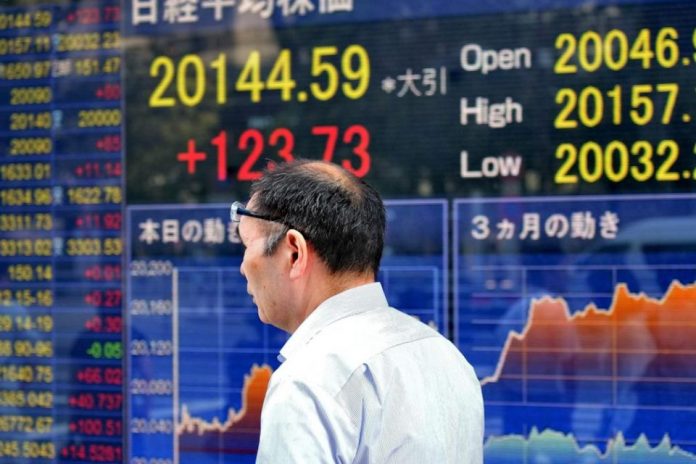NEW YORK: Wall Street continued to tumble Friday amid renewed fears that the virus outbreak in China will have a real impact on companies that depend on goods from the Asian manufacturing hub.
More than 2,200 people have died from the virus in China, which has infected over 75,000 people there and over 1,000 abroad, fueling concerns the epidemic will become a bigger problem in neighbouring economies. As a growing list of companies warned of an expected hit to their bottom lines, investors seemed unwilling to hold onto shares and moved into safe havens. The benchmark Dow Jones Industrial Average fell 0.8 percent to close the week at 28,992.41.
The broad-based S&P 500 lost 1.1 percent to end at 3,337.75, and the tech-rich Nasdaq dropped 1.8 percent to 9,576.59. “Because we just don’t know the full impact of the coronavirus yet, we’re going to continue to see a shadow of uncertainty over the market,” said Shawn Cruz of TD Ameritrade. The economic impact “might come from both ends,” he told a foreign news agency.
“You might run out of suppliers because so many people get their supplies from China” and at the same time there will be less buying “on the other side,” he said. Dow-member Coca Cola was among the firms warning about the virus’ impact on earnings in the first quarter, but said it will expect to meet full-year targets. The company’s shares gained 0.7 percent. But Apple, which warned this week of lower revenue and constrained iPhone supply, lost 2.3 percent. Gold jumped 1.6 percent to $1,646.20 an ounce, while the return on the 30-year US Treasury bond hit an all-time low of 1.9 percent. US economic data did not help matters, with existing home sales dipping in January — though they remain strong and far higher than a year ago — and a business activity survey showed a continued slowing of manufacturing output.




